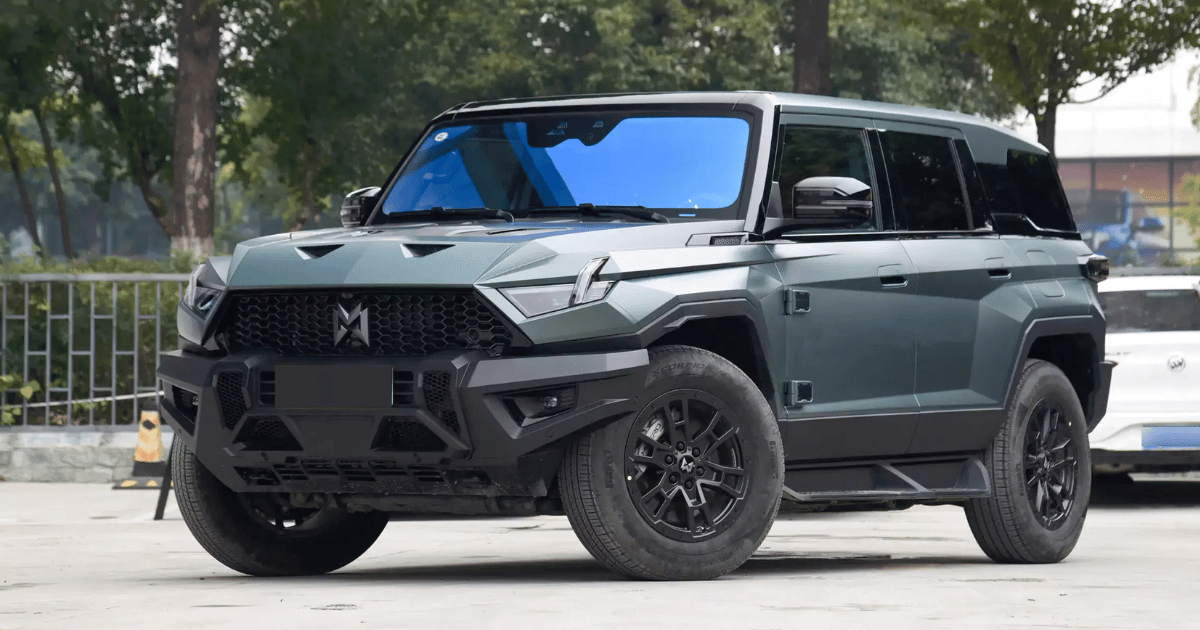- Mobility Rising
- Posts
- Government pressure for localisation shows early results
Government pressure for localisation shows early results

From the newsletter
Nigerian EV startup Saglev Electromobility and China’s Dongfeng Motor Corporation have unveiled an off-road luxury electric SUV assembled in Nigeria. The vehicle has a range of 450 km and an 800 kW electric motor. Saglev assembles 16 electric car and bus models targeting various business segments, including mass transit, ride-hailing and passenger cars.
Demand for electric vehicles is growing in Africa, and African EV firms are partnering with foreign firms, mainly Chinese, to access cutting-edge technology, components and technical expertise to assemble EVs locally.
This is partly driven by African governments, who are increasingly demanding higher proportions of components used in vehicle manufacturing be sourced locally.
More details
The M-Hero 917, is a full-size, military-inspired, luxury off-road electric vehicle boasting over 1000 horsepower, a four-motor all-wheel-drive system, and an All-terrain Intelligence System (M-ATS), adjustable ride height for up to 333mm ground clearance with an additional 105mm for extreme terrains. According to Saglev, the SUV’s design allows it to navigate diverse terrains like snow, mud, sand, rock, and wading.
Saglev currently has an assembly capacity of 2,500 cars per annum and manages to make up to 10 cars daily on average. “We think that the electric vehicle story is a story where Nigeria deserves to play appropriately. We don’t need to be importing cars,” said the company’s CEO, Dr Olugbenga Faleye.
The startup was Nigeria’s first EV assembler, with plans to scale production to 10,000 units per year through intensified shifts. Saglev’s output includes electric passenger cars, e-hailing vehicles, and BRT buses, all assembled locally, though core components like drivetrains and batteries still come via Dongfeng
While only a handful of companies are doing electric car assembly on the continent, the number is rising. For instance, Botswana this year unveiled 68 electric cars and buses assembled locally with the help of two Chinese electric vehicle manufacturers, Skywell and CHTC Kinwin. In January, Burkina Faso’s Itaoua unveiled an electric car made locally with the help of a Chinese company.
Morocco is the only country in Africa that does full-scale electric car manufacturing. Global carmaker Stellantis currently makes 20,000 small electric cars at its Kenitra factory in the country and has just invested more money into the factory, increasing the capacity to 70,000 units annually. French carmaker Renault’s plant in Tangier has a capacity to produce 17,000 electric cars annually.
More projects are in the pipeline in multiple countries, including in Kenya where MojaEV plans to establish a local car assembly plant in the country with a capacity of 1,500 cars annually before the end of 2025. But despite the increase in the continent’s assembly capacity, cheaper imports from major producing countries, especially China, will continue to exert pressure on local assemblers.
Our take
The surge in demand for electric cars will see more EV assembly plants launched on the continent, but most will continue relying on Chinese partners for critical components. While firms like Saglev aim for localization, significant technological and supply chain barriers mean full local manufacturing will remain limited in the short term.
As demand for EVs rises, African governments will likely introduce stricter local content rules—requiring assemblers to source more parts, labor, and services locally. This could spur development of component supply industries such as battery casing, wiring, interiors but also challenge firms that lack access to capital or tech partnerships.
Imported EVs from China, especially low-cost models, will likely remain cheaper than locally assembled alternatives, putting pressure on African startups unless governments introduce protective measures like import duties or EV-specific incentives.